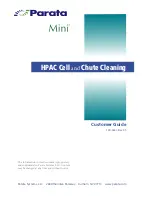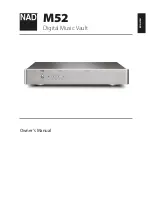
NEAX2400 IPX Feature Programming Manual
Page 466
NDA-24297, Issue 1
M-1
Meet-Me Paging
Programming (cont’d)
STEP 5:
ANPD
- Reserve levels for trunk access and for MEET-ME PAGE answer and cancel codes. Assign
the trunk access level for a Connection Index (CI) of Normal (N) and Hooking (H) service. Number of
necessary digits is usually one or two. Busy Lamp Field is not activated. If the MEET-ME PAGE
answer and cancel codes reside in a level reserved for features, then assign according to a
predetermined numbering plan. If the MEET-ME PAGE answer and cancel codes reside in a separate
level, then assign a CI of Normal (N) only. The number of necessary digits is usually two, and the
Busy Lamp Field is off.
STEP 6:
ASPA
- For the MEET-ME PAGE route access code, assign the access code in the level assigned in
ANPD. Type of Service, SRV = OGC (Outgoing Call) for Outgoing trunks. Assign CIs of Normal (N)
and Hooking (H). For the MEET-ME PAGE route answer and cancel codes, assign the access code in
the level assigned in ANPD. Type of Service, SRV = PAGA (Paging Answer) and SRV = PAGC
(Multiple Announcement Service). Assign the proper route number associated with this code. Assign
for a CI of Normal (N).
STEP 7:
ARSC
- For stations allowed access to the paging routes, allow Route Restriction Index (RRI) 3 for
the Route Restriction Classes (RSC) assigned to these stations.
STEP 8:
ASFC
- Assign a Service Feature Class that allows SFI 38 to the stations that will have MEET-ME
PAGE. If Priority Page is used, allow SFI 57.
STEP 9:
ARRC
- Allow trunk-to-trunk connection between the paging route and the incoming/outgoing route.
Assign ARI-A-RES, via the Attendant Console. The incoming/outgoing route would be the party
being held at a station, or Attendant Console wishing to speak to the party for whom the page is
intended.
















































